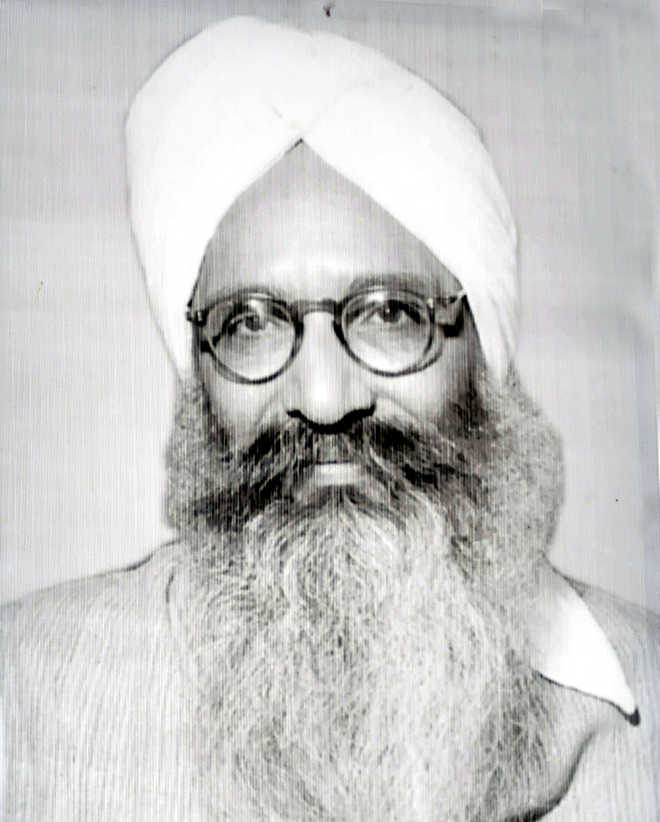Pratap Singh Kairon (1901-1965)
The architect of modern Punjab, Pratap Singh Kairon, was from Kairon village in Amritsar district. His father Nihal Singh was a farmer and active in the Singh Sabha movement. Partap Singh studied at Khalsa College, Amritsar, and the University of Michigan where he earned a Master’s degree in political science. After returning to Amritsar in 1929, he started a weekly paper in English, The New Era and became active in politics, as Congress and later as an Akali activist. He was imprisoned for political activities. In 1937, he entered the Punjab Legislative Assembly as an Akali nominee. He was general secretary of the Punjab Provincial Congress Committee from 1941 to 1946. After Independence, he was Minister from 1947 to 1949 and Chief Minister from 1952 to 1964, when he resigned, following the report of the commission of enquiry against him. Pratap Singh Kairon was assassinated on February 6, 1965.
Read more
Gian Singh Rarewala (1901-1979)
The first Prime Minister of PEPSU, Gian Singh Rarewala graduated from Government Mohindra College, Patiala, in 1924. He served the princely state of Patiala as a High Court judge, Revenue Commissioner and Revenue Minister. He then headed a popularly-elected United Front government as Chief Minister of PEPSU. It was the first non-Congress government in India. In 1953 President’s Rule was imposed and the government was dismissed. In 1955, he became president of the Shiromani Gurdwara Parbandhak Committee. After PEPSU was merged, he joined the Congress. He was elected MLA in 1957, 1962 and 1967. He was Irrigation Minister in the Pratap Singh Kairon Cabinet.
Lala Jagat Narain (1899-1981)
Born in 1899 at Wazirabad, Gujranwala district (now in Pakistan), and educated at DAV College, Lahore, Jagat Narain left Law College to join the Non-Cooperation Movement. He was jailed for two and a half years. He was associated with leaders like Lala Lajpat Rai, Dr Satya Pal and Baba Kharak Singh. He was President of the Lahore City Congress Committee, leader of the Congress Party in the Lahore Corporation, a member of the Punjab Provincial Congress Committee and a member of the All-India Congress Committee for about 30 years. He was a Minister in the Bhim Sen Sachar Cabinet, but resigned later. He founded the Urdu daily Hind Samachar in 1945 and Hindi daily Punjab Kesri in 1965. He was assassinated on September 9, 1981.
Amar nath Vidyalandar (1901 -1985)
A Minister of Education, Labour and Languages from 1957 to 1962 in the Kairon Cabinet, Amar Nath Vidyalankar was an Indian freedom fighter, journalist and social worker. He was elected to Parliament three times. A life-long Congress party functionary and a prominent Socialist, he served on many committees and international delegations. In 1977, Vidyalankar decided not to continue in public office but remained active in the Congress until his death in 1985. He wrote books in Hindi and in English.
Hukam Singh (1895-1983)
A man who came to India after Partition with a price of Rs 25,000 on his head, Hukam Singh was born at Montgomery in Sahiwal. He got his LLB from Law College, Lahore, and practised law in Montgomery. He took part in the movement to free gurdwaras from British political influence. He was elected member of the SGPC after the Sikh Gurdwaras Act, 1925. He served as a judge in the Kapurthala State and was president of the Shiromani Akali Dal. He was also nominated a member of the Constituent Assembly. He successfully fought for the Lok Sabha seat from Kapurthala (as an Akali candidate), Bathinda and Patiala (as a Congress candidate). He was unanimously elected Deputy Speaker of the Lok Sabha in 1957 and Speaker in 1962. Later, he was Governor of Rajasthan. He died in Delhi on May 27, 1983.
Unlock Exclusive Insights with The Tribune Premium
Take your experience further with Premium access.
Thought-provoking Opinions, Expert Analysis, In-depth Insights and other Member Only Benefits
Already a Member? Sign In Now











